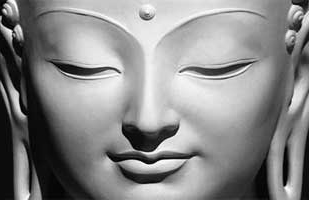
Chapter XXI - PAKINNAKA VAGGA - Miscellaneous

ARAHANTS GO UNGRIEVING
Mataram pitaram hantva rajano dve ca khattiye
Rattham sanucaram hantva anigho yati brahmano.
Mataram pitaram hantva rajano dve ca sotthiye
Veyyaggha pancamam hantva anigho yati brahmano. [294-295]
Having killed mother 1 (craving) and father 2 (conceit) and two warrior kings (views based on eternalism and nihilism), and having destroyed a country (sense-avenues and sense-objects) together with its revenue officer 3 (attachment), ungrieving goes the Brahmana (Arahant). Having killed mother and father and two brahmin kings, and having destroyed the perilous path 4 (hindrances), ungrieving goes the Brahmana (Arahant). [294-295]
XXI: 04 Lakuntaka Bhaddiya killed his 'parents'
On one occasion, some visiting bhikkhus came to pay homage to the Buddha at the Jetavana monastery. While they were with the Buddha, Bhikkhu Lakuntaka Bhaddiya happened to pass by not far from them. The Enlightened One told them, 'Bhikkhus, look at that monk. He has killed both his father and his mother, and having killed his parents, he goes about without any remorsefulness.' The bhikkhus could not understand the statement made by the Buddha because they knew that the monk had committed no such crime. So, they entreated the Buddha to make it clear to them.
In the above statement, the Buddha was referring to an Arahant, who has eradicated craving, conceit, wrong beliefs and attachment to sense bases and sense objects. He had made the statement by means of metaphors. Thus, the terms 'mother' and 'father' are used to indicate craving and conceit respectively. The Eternity-belief (Sassata Ditthi) and Annihilation-belief (Uccheda Ditthi) are likened to two kings, attachment is likened to a revenue officer who collects income tax and the sense bases and sense objects are likened to the kingdom.
Notes:
- Mata = (mother) represents craving (tanha) as it produces birth.
- Pita = (father) represents 'I-conceit'.
- Sanucaram = (revenue officer) here represents clinging to life (nandiraga).
- Veyyagghapancamam, this term is used to denote the five hindrances (nivarana) of which doubt or indecision (vicikiccha) is the fifth. Veyyaggha means a perilous path infested with tigers. Doubt is comparable to such a path. (commentary). The other four hindrances are sense-desires (kamacchanda), ill-will (vyapada), restlessness and brooding (uddhacca-kukkucca), and sloth and torpor (thina-middha). They are called hindrances because they obstruct the path to heavenly bliss and Nibbana.

Editor for Buddha brothers: Matthew Laird Acred
If you should encounter any bugs broken links, or display errors just email us.
Buddha brothers has been running since Aug 2010 and can continue to run with your kind help!
If you love our website please donate so we can make this site even better !!